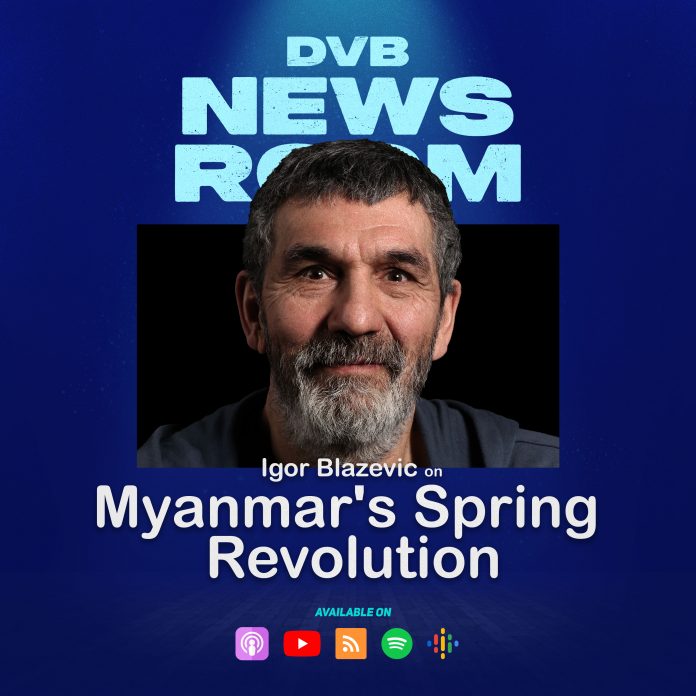FROM THE DVB NEWSROOM
Igor Blazevic sat down with DVB Bureau Chief Myat to discuss Myanmar’s Spring Revolution. It aired on the DVB English Newsroom podcast. Find and listen on Spotify, YouTube, YT Music, Apple & Google, or wherever you listen to podcasts.
Blazevic is program director at the Prague Civil Society Centre and director of Educational Initiatives, a training program for Burmese living in Thailand. He’s an outspoken advocate for Myanmar’s pro-democracy movement.
Here’s a condensed Q&A version of the interview.
DVB: You’ve been traveling a lot these days in Thailand. You’ve met friends involved in the Spring Revolution (in Myanmar). What did you learn from them? How do you see the current main trends?
IB: Since the coup, we are constantly in a critical moment. The first has been whether the people en masse will join the protests and people have done that. The next was when the military applied a brutal crackdown against the unarmed civilian protesters. The people have found courage and a new way to oppose the military junta.
DVB: Amidst the depressing situation and the international community’s misunderstanding (of the situation in Myanmar). What are the positive trends and strengths?
IB: One thing is the ongoing participation of the people. They can’t take to the streets in large numbers anymore. People are finding other ways to show the military junta and they are supporting the profound change in the country.
DVB: We can see the junta is getting weaker (by day). Do you see the weakness of the junta and what are their remaining strengths?
IB: They are getting significantly weaker with the situation of their troops on the ground. They’re simply stretched across the country. It exposes them to small but significant attacks by many (People’s Defense Force) units.
For the first time in decades, these soldiers sitting now somewhere at their outposts are afraid. Until this revolution, they’ve never been afraid.
DVB: If you look at the history after 1962 we had a series of revolutions in 1988, 2007 and we had a so-called transition between 2010 and 2020. We had an elected government for five years but they took power again. Do you see a scenario that our revolution will go backwards or forwards?
IB: The Myanmar military had an advantage. They have been able to always isolate a certain segment of the political and social forces who are in rebellion against them. Then crush them while making a ceasefire or corrupt deals with stakeholders. They have been good at playing these games and never picking a fight with more than one opponent.
This time the military has activated a very broad spectrum of the players who are fighting back. What is now critically important…



